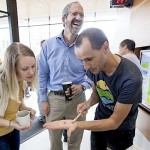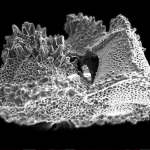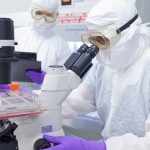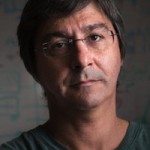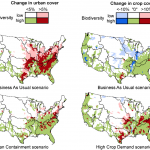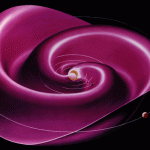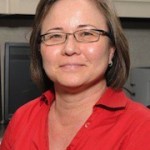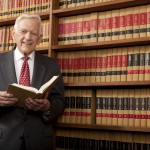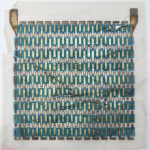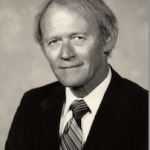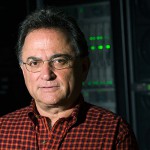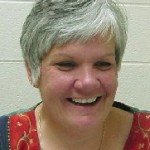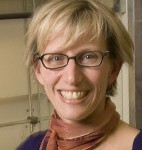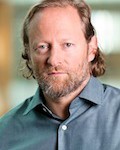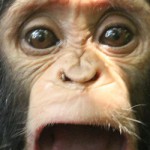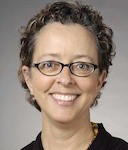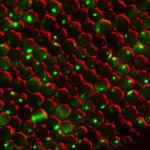Tag Research
Teatime becoming an institution at institutes
For David Krakauer, a cup of tea has long been as much a part of the research process as beakers, computers and lab benches. Read More
WARF Innovation Award winners offer a better oat, infection disrupter
A new oat offering tasty ways to lower cholesterol and compounds capable of disrupting serious bacterial infections earned top honors in this year's Wisconsin Alumni Research Foundation Innovation Awards program. Read More
New techniques sharpen climate record found in fossil shells
Locked inside the fossil shells of a marine plankton are the secrets of past climate. Read More
Biomanufacturing center takes central role in developing stem-cell therapies
Developing a new drug takes enormous amounts of time, money and skill, but the bar is even higher for a promising stem-cell therapy. Many types of cells derived from these ultra-flexible parent cells are moving toward the market, but the very quality that makes stem cells so valuable also makes them a difficult source of therapeutics. Read More
Target of animal rights protests kicks off animal research ethics forum
Any research that includes animals presents ethical questions, but they are questions Dario Ringach believes we rarely address together. Read More
Study puts freshwater biodiversity on the map
When it comes to economic growth and environmental impacts, it can seem like Newton's third law of motion is the rule - for every action, there is an equal and opposite reaction - and that in most cases, the economy prospers and the environment suffers. Read More
The sun also flips: 11-year solar cycle wimpy, but peaking
In a 3-meter diameter hollow aluminum sphere, Cary Forest, a University of Wisconsin–Madison physics professor, is stirring and heating plasmas to 500,000 degrees Fahrenheit to experimentally mimic the magnetic field-inducing cosmic dynamos at the heart of planets, stars and other celestial bodies. Read More
WARF’s Bremer remembered as technology transfer legend
Sustained by a passion to improve people's lives, Howard Bremer's enduring commitment to innovation fueled his work and his life. Bremer, 90, a WWII U.S. Navy veteran and patent attorney with degrees in law and chemical engineering from the University of Wisconsin–Madison passed away Friday, ending a remarkable career at the Wisconsin Alumni Research Foundation that spanned 53 years. Read More
The chemistry of color: Energy researcher develops dye-based solar cells
University of Wisconsin–Madison researchers working at the intersection of basic and applied science focus on key factors like cost, environmental impacts ... and sometimes, color. Read More
UW’s bug-eating advocate had global impact
When Gene DeFoliart had his brainstorm in 1974, not even he thought his brainchild would be an easy sell. As a professor at the University of Wisconsin–Madison, DeFoliart was focusing on how insects spread viral disease. Now he was captivated by an opposite proposition: using insects to foster human health — using them, to be specific, as food. Read More
Miron Livny: Collaborative spirit supports Nobel Prize-winning science
In 1964, François Englert and Peter Higgs theorized the existence of a subatomic particle that gives all other particles mass. Nearly 50 years later in 2012, a global team of researchers found evidence that supports the existence of the Higgs boson particle at the Large Hadron Collider (LHC) in Geneva, Switzerland. Read More
Physics Nobel awarded for Higgs particle; UW played key role in research
UW–Madison teams led by physicists Sau Lan Wu and Wesley Smith have played crucial roles in the development and operation of the two main experiments at the Large Hadron Collider (LHC) that discovered the Higgs boson in July 2012. Read More
UW-Madison team probes home health environments with virtual reality
In health care environments, nurses and doctors can closely monitor patients' medical regimen and schedules. But when a patient leaves the clinic or hospital to go home, the responsibility for care transitions to families and patients. The result: Regimens might not be adhered to as closely. Read More
UW-Madison launches national Agricultural Innovation Prize
As the world's population continues to increase, so does the need for sustainable and secure food systems. A new student contest run by the University of Wisconsin–Madison advances the idea that long-term solutions in agriculture cannot draw on innovations from only one discipline. Read More
UW scientist sniffs out possible new tick species
In June 2012, Tony Goldberg returned from one of his frequent trips to Kibale National Park, an almost 500-square-mile forest in western Uganda where he studies how infectious diseases spread and evolve in the wild. But he didn’t return alone. Read More
UW–Madison researchers put NIH grant review process under microscope
The National Institutes of Health’s system for selecting research projects may be considered the gold standard for equitably awarding funding, but that hasn’t kept the agency from dispatching three University of Wisconsin–Madison professors to probe the system for bias. Read More
Zinc discovery may shed light on Parkinson’s, Alzheimer’s
Scientists at the University of Wisconsin–Madison have made a discovery that, if replicated in humans, suggests a shortage of zinc may contribute to diseases like Alzheimer's and Parkinson's, which have been linked to defective proteins clumping together in the brain. Read More
Exhibiting signs of life
What if you could travel back in time 3 billion years, and take a breath? What would earth’s air smell like? Deeply stinky, according to Brooke Norsted, an outreach specialist for the University of Wisconsin–Madison Geology Museum. Read More

